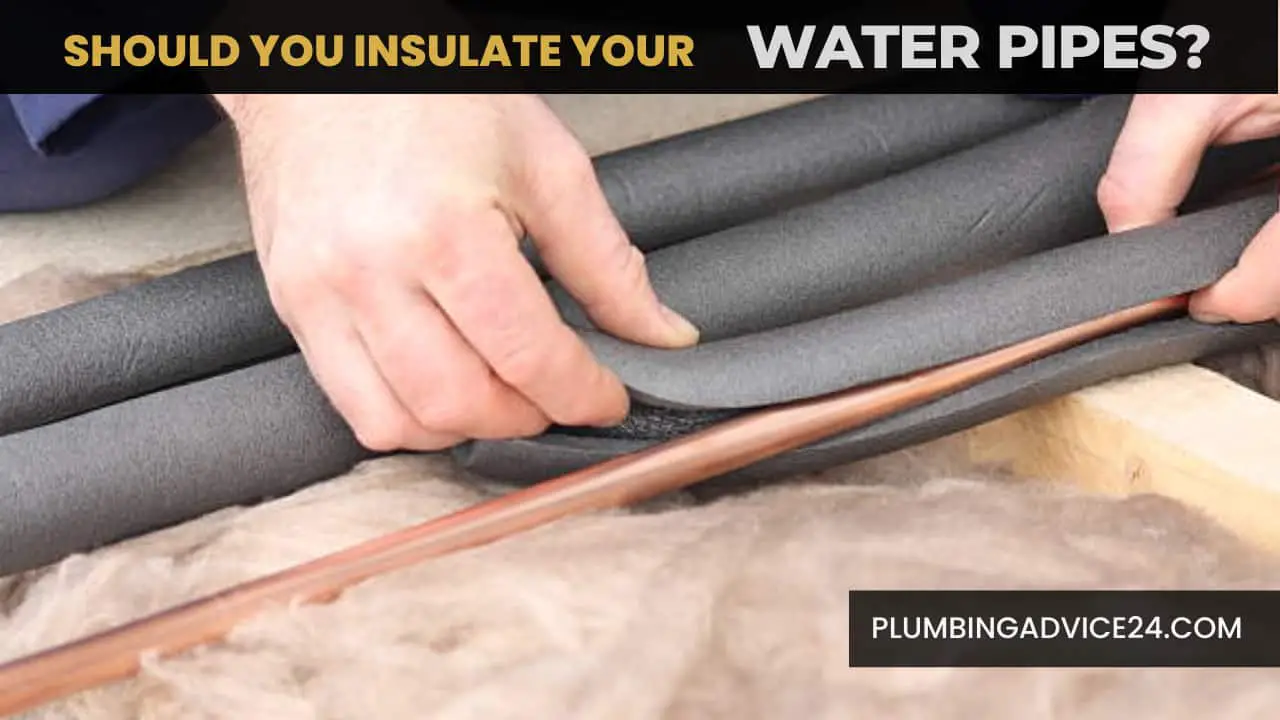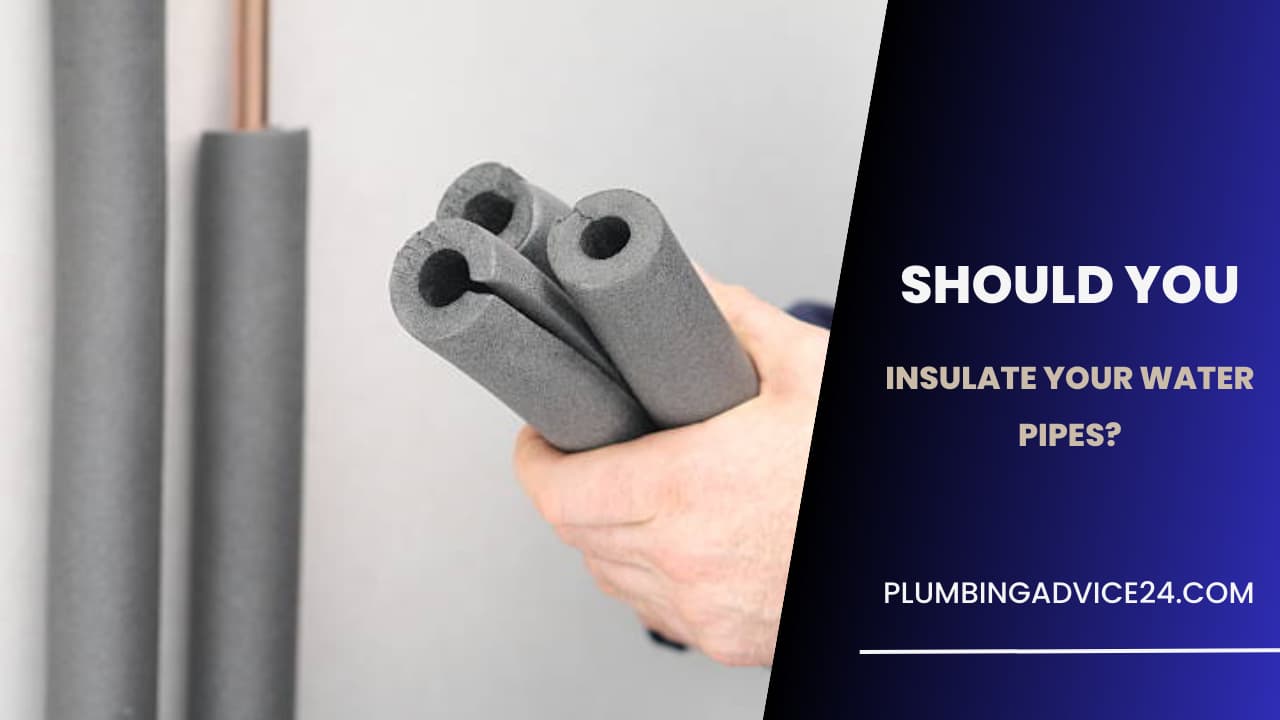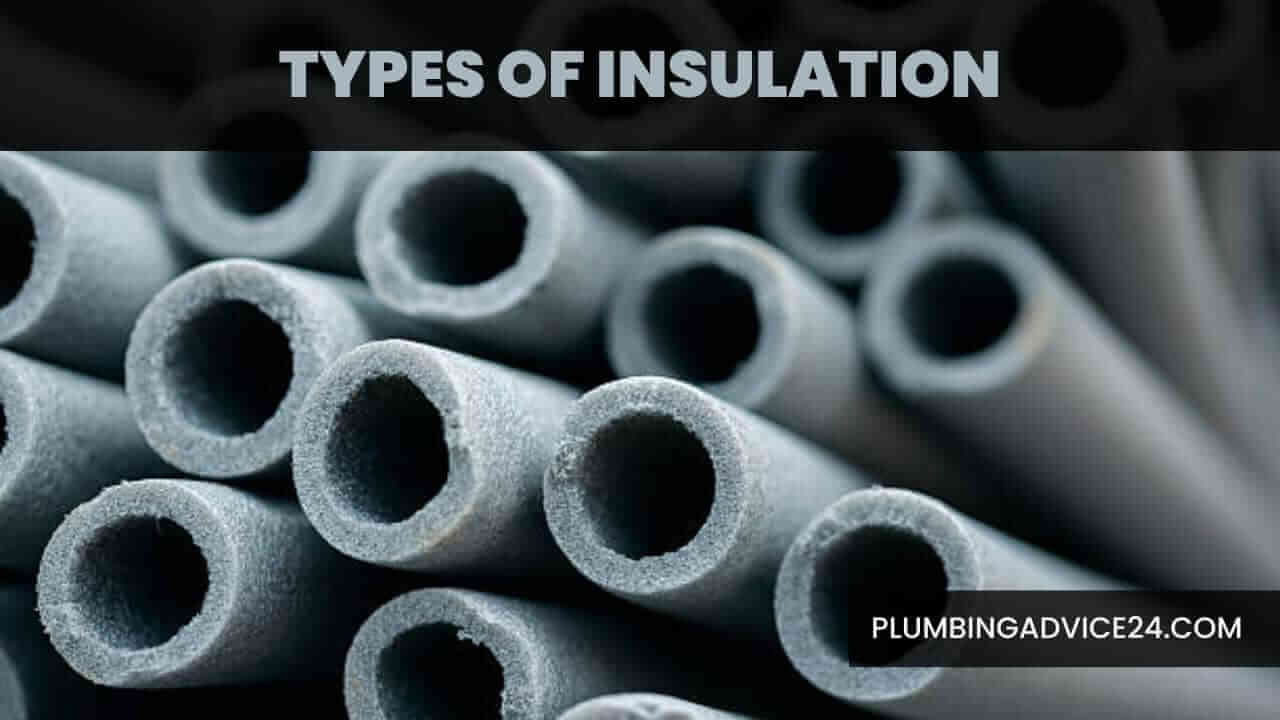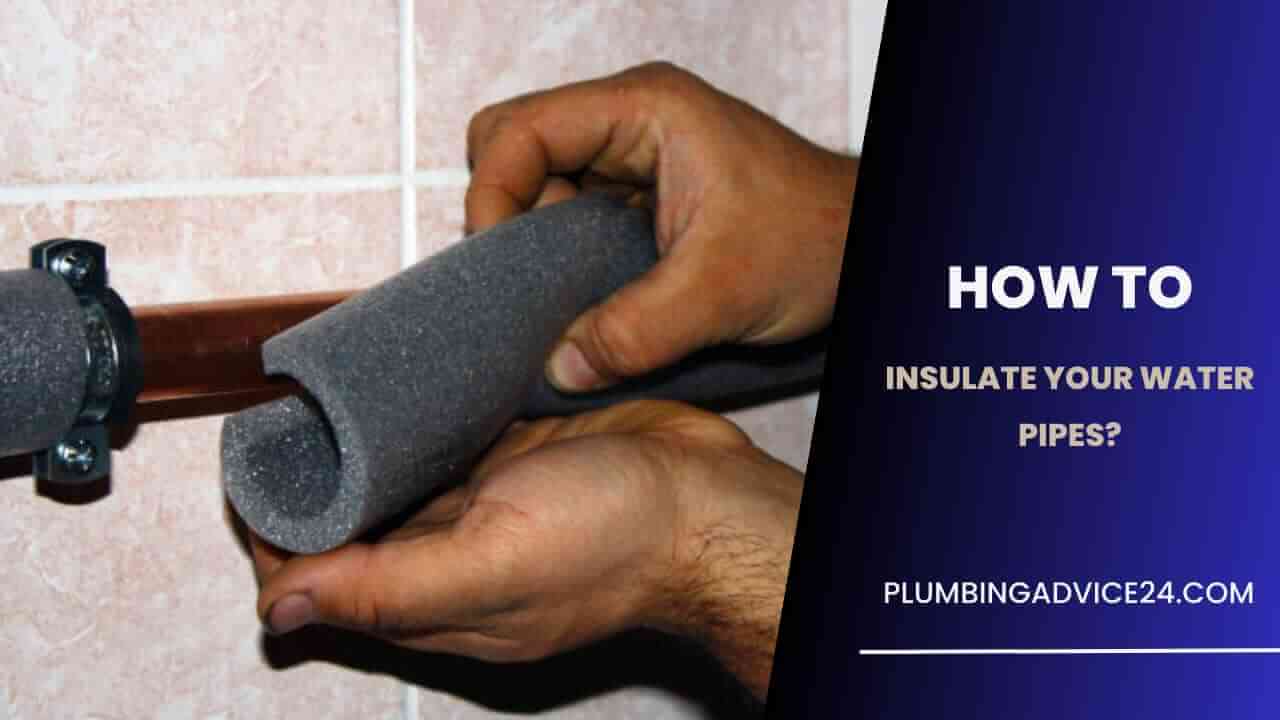Should You Insulate Your Water Pipes?
Water pipes are essential as part of any plumbing system. They are responsible for the smooth process of the plumbing and water distribution throughout the structure. If the water pipes are not properly insulated, many problems may arise. This article will discuss whether or not you should insulate your water pipes, the benefits of insulation, its types, and how to install it.
Should You Insulate Your Water Pipes?
Yes, insulating your water pipes can be a good idea for several reasons. There are several things you can do to prevent your pipes from freezing or bursting during the winter. Insulating your water pipes is only one part of this process, but it’s an important step that shouldn’t be overlooked. Insulating your pipes is an easy way to save on costly plumbing repairs later. Below are the reasons why you should insulate your water pipes.
1. Reduced Energy Costs
Insulating your water pipes significantly reduces your home’s energy costs. One of the most important justifications for doing this. As it passes through pipes, water temperature often drops. The pipes will cool more quickly if not insulated because the heat from the water will be lost to the air around them.
The amount of energy utilized and the price of the power bill rise since this method uses more energy to heat the water. Lower heat loss and energy costs by insulating the pipes. In contrast to being cooled by the air around it, water moving via insulated pipes keeps its original temperature.
2. Protection Against Freezing
Water pipes frequently explode when temperatures fall below freezing, often in winter. When pipes freeze, they are more likely to burst, creating significant problems for the plumbing system and the surrounding area. Insulation may prevent pipes from freezing by maintaining a steady temperature in the water.
This lessens the possibility of pipes breaking as a result of ice buildup. Another benefit is that water cannot freeze because of insulated pipes. This is especially important for those who own a second home or whose main dwelling has been empty for lengthy periods.
3. Improved Water Quality
Insulating the water pipes in your house can improve the quality of the water you consume. Unclean water may enter your home via uninsulated pipes. Corrosion and cracking are less likely to occur in pipes that are insulated. It’s necessary to guarantee that the water is fit for your consumption.
Bacteria and other germs that flourish in moist environments are prevented from growing by insulating pipes. The health of humans is at stake if these creatures are allowed to increase. Those with compromised immune systems or who often become ill would benefit greatly from using this.
4. Extended Lifespan of the Plumbing System
The plumbing system is a crucial component found in every house. It is in charge of both dispensing and supplying people with clean water. But plumbing systems may break down with time, leading to several problems, including leaks, blockages, etc.
By lowering the risk of damage from cold, corrosion, and other causes, insulating your water pipes may prolong the lifespan of your plumbing system. Installing a durable plumbing system is one way to accomplish this goal. If the pipes are insulated, the plumbing system will last longer and require fewer repairs.
5. Improved Comfort
You may also increase comfort by insulating the water pipes in your house. Some rooms may be much colder than others if the pipes bringing heat into the home are improperly insulated. A house might be more pleasant by distributing heat evenly throughout the structure if insulated pipes are used as part of the solution.
Installing insulated pipes might reduce the noise level of your plumbing system. This is crucial if you live in a flat or other building where the plumbing system makes noise.
6. Cost-Effective
Insulating your water pipes is a good choice that might ultimately save you money. The expense of installing insulation may initially appear high, but over time, it will pay for itself in reduced energy bills, better water quality, and longer plumbing system lifespan.
In addition to being a sensible financial move in and of itself, homeowners who protect their water pipes may qualify for refunds and other advantages from their utility companies. Tax credits may be available to homeowners who make improvements to their homes to make them more energy efficient.
Related Post : What Happens When Pipes Freeze | How to Prevent Frozen Pipes
Types of Insulation
Water pipes may be insulated using a wide range of insulation materials. People utilize a lot of foam, plastic, and rubber products. Most individuals pick foam insulation because it is affordable and simple to install. It is a polyethylene foam that comes in tubes easily cut to size. Because it can be cut to the appropriate thickness and fits in tight spaces, foam insulation is ideal for insulating pipes. Mold and mildew cannot form on their surface because it does not allow water to enter. This makes it an excellent alternative for rainy environments.
Fiberglass insulation is more expensive than other types of insulation, but it performs better and lasts far longer. This substance is constructed of thin glass strands that have been glued together. The pipes might be encased with fiberglass insulation, which comes in rolls or batts. It works effectively for insulating pipes in larger regions or for customers who want the maximum insulation feasible in their houses. Fiberglass insulation is safer in homes since it does not burn quickly.
Rubber insulation is another substance often utilized in commercial and industrial environments. This flexible closed-cell foam is unaffected by water, oil, or chemicals. Rubber insulation is more costly than foam insulation, but it insulates better and is an excellent option for pipes in harsh environments. Rubber insulation may prevent corrosion since it does not develop mold or mildew.
How to Insulate Your Water Pipes?
If you have some fundamental do-it-yourself skills, installing insulation on water pipes is not difficult. Measuring the pipes is the first step in estimating the insulation necessary. After that, measured, cut-to-size, and installed insulation is used to cover the pipe. Tape or zip ties are then used to secure the insulation.
For pipes that stick out of the ground, such as those located in crawl spaces and basements, you can use heat tape or heat cables to keep them warm. This type of insulation is difficult to install yourself, so you may want to hire a plumber for this job.
Remember that the insulation material should be uniform and holes-free for the best insulation. Insulation loses some efficiency by allowing heat to escape via cracks or holes. Your to-do list should also give insulating your pipes priority. This applies to pipes in your house’s cold spaces, such as the basement or attic.
Conclusion:-
Insulating your water pipes is a wise investment to save you money in the long run. It offers many benefits, including reduced energy costs, freezing resistance, better water quality, longer plumbing life, improved comfort, and cost savings. Several types of insulation, including foam, fiberglass, and rubber, each with its own unique benefits. Insulating your water pipes is a simple DIY project that homeowners can do with basic DIY skills. With proper installation, homeowners can achieve maximum insulation and enjoy the numerous benefits of insulated water pipes.
Related Post : What Do I Do If My AC Pipe Is Frozen?
What Does Pipe Insulation Do?
Pipe wrap insulation is the most common water pipe insulation. Pipe insulation keeps your pipes warm, and keeps them from freezing in freezing temperatures.
What to Use to Wrap Pipes?
Water pipes may be wrapped using a wide range of insulation materials. People utilize a lot of foam, plastic, and rubber products. Most individuals pick foam insulation because it is affordable and simple to install.
Do You Need to Insulate Hot Water Pipes?
It is a good idea to insulate your hot water pipes. As the hot water passes through the pipes, the temperature of the water drops several times. If the pipes are not insulated they will cool more quickly as the heat from the water will be transferred to the air around them. Insulating your water pipes can significantly reduce your home’s energy costs.
How to Insulate Pipes from Freezing?
If you have some fundamental do-it-yourself skills, installing insulation on water pipes is not difficult. Measuring the pipes is the first step in estimating the insulation necessary. After that, measured, cut-to-size, and installed insulation is used to cover the pipe. Tape or zip ties are then used to secure the insulation.
How to Keep Pipes from Freezing in Crawl Space?
For pipes that stick out of the ground, such as those located in crawl spaces and basements, you can use heat tape or heat cables to keep them warm. This type of insulation is difficult to install yourself, so you may want to hire a plumber for this job.
If You Liked This Post? So Share It with Your Friends
Suggested Articles:









